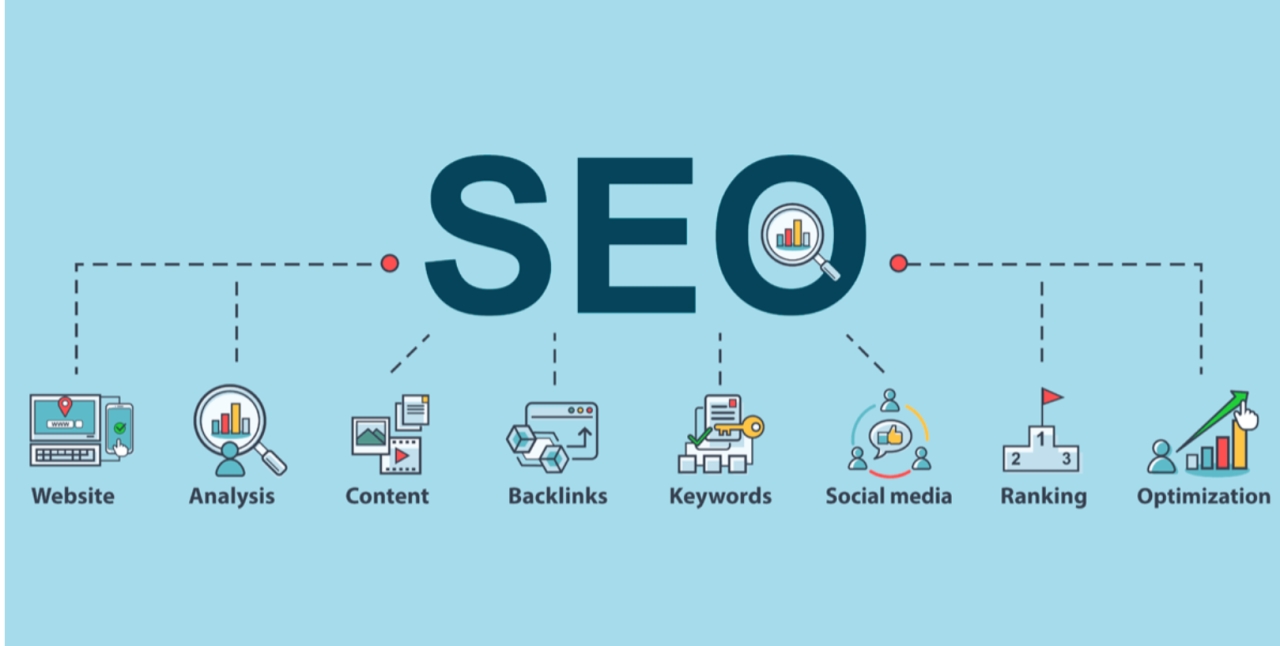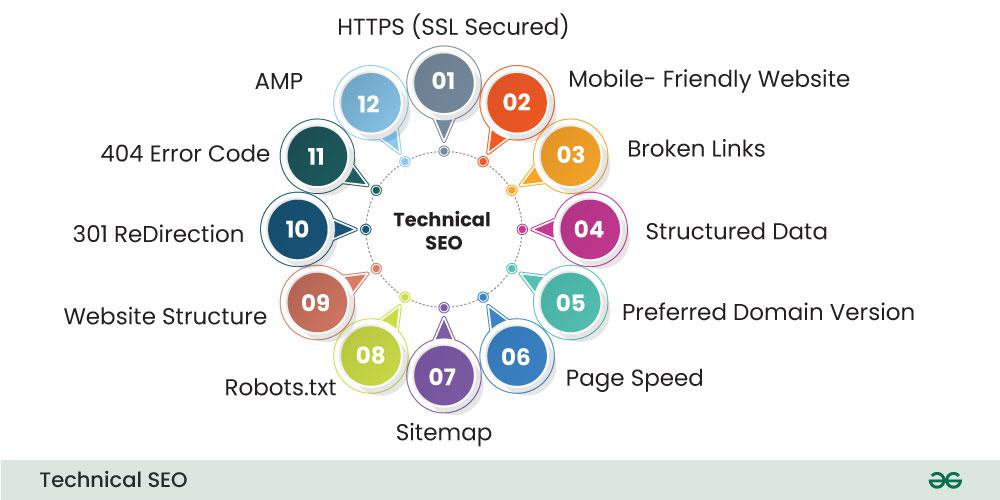
Search Engine Optimization is a crucial component of digital marketing. With billions of searches happening daily, SEO ensures that your website ranks higher on search engine result pages (SERPs), driving organic traffic and increasing conversions. Whether you’re a business owner, marketer, or blogger, understanding SEO can help you establish a strong online presence.
Techniques of SEO
There are three types of techniques:
a) White Hat SEO : White hat includes optimizing your website following the restrictions imposed by search engines. It’s also called ethical or organic SEO technique.
b) Black Hat SEO : Black hat includes unethical techniques which are disapproved by search engines.
c) Gray Hat SEO : Uses techniques that are not specially banned by search engines, but are not exactly white hat or black hat techniques.
Types of SEO
Here mentioned some types:
On-Page SEO : On-Page- SEO refers to optimizing the parts of your website you control like content, html, title of page, meta description and url etc.

Off-Page SEO : Off- Page SEO focuses on the ranking factors that occur outside of your website like brand mentions and create backlinks.

Technical SEO : The process of making sure a website meets the technical requirements of search engines to improve its organic ranking.

Local SEO : Local SERPs aims to connect business with their local community, focusing geographical relevance and engagements.

Ecommerce SEO : Ecommerce SEO is the process of optimizing an online store to improve its visibility in search engines. It can help increase sales and build a website’s relevance.

Why is SEO Important?
- Increases Organic Traffic – Higher rankings mean more visibility, leading to increased website visitors.
- Builds Credibility and Trust – Users tend to trust websites that appear on the first page of search results.
- Enhances User Experience – Involves optimizing website speed, mobile-friendliness, and usability.
- Boosts Conversions – Better visibility leads to higher engagement and conversions.
- Gives a Competitive Advantage – Businesses that invest in can outrank competitors and establish a strong online presence.
- Supports Local Businesses – Helps businesses appear in location-based searches, driving foot traffic and local sales.
Disadvantages of SEO:
Here are some key of disadvantages:
Time-Consuming – SEO takes time to show results, often requiring months of consistent effort.
Constant Algorithm Changes – Search engines frequently update their algorithms, requiring continuous adjustments.
High Competition – Competing for top rankings can be challenging, especially in highly competitive industries.
No Guaranteed Results – Despite best practices, SEO does not guarantee top rankings due to evolving algorithms and competition.
Initial Costs – Hiring SEO experts, purchasing SEO tools, and investing in content creation can be expensive.
Requires Continuous Effort – SEO is not a one-time process; it requires ongoing optimization and content updates.
Potential Penalties – Unethical SEO practices (black-hat SEO) can lead to penalties or de-indexing by search engines.
Tough to Measure ROI – Unlike paid ads, SEO results can be harder to track and measure accurately.
Conclusion:
SEO is an ongoing process that requires continuous efforts. By implementing the right strategies, optimizing content, and staying updated with algorithm changes, you can improve your website’s search visibility and grow your online presence. Start optimizing today and watch your website climb the search engine rankings!
Question asked by clients….
What is SEO?
SEO, or Search Engine Optimization, is the practice of optimizing a website to rank it higher in search engine results.
What is on-page and off-page SEO?
On-page SEO deals with elements on your own website that you can optimize, such as content, meta descriptions, and internal links. Off-page SEO refers to actions taken outside of your website, like gaining backlinks from other sites and social media activity.
Do I need to redesign my website for SEO?
Not necessarily. However, technical SEO factors like site speed, mobile-friendliness, and secure connection (HTTPS) can significantly impact your rankings, so you may need to consider those aspects.
How do you measure SEO success?
SEO success is generally measured through key performance indicators (KPIs) such as organic traffic, keyword rankings, impressions and conversion rates. These metrics give you an idea of how well your SEO campaign is going.
How do we choose the right keywords?
Keyword selection should be based on research using specialized research tools, competitor analysis, and an understanding of your target audience’s search queries.
Can SEO help me with online reputation management?
Yes, SEO techniques can help improve your online presence, manage your brand reputation, and control what appears in search results for queries related to your business.
Follow on
Facebook : https://www.facebook.com/share/19ci9PmUVr/
Instagram : https://www.instagram.com/mydigimaker?utm_source=qr&igsh=MWcyZnZjbndmZWM3bQ==